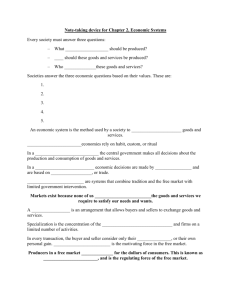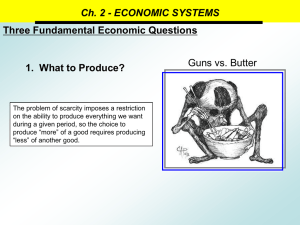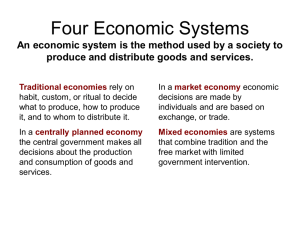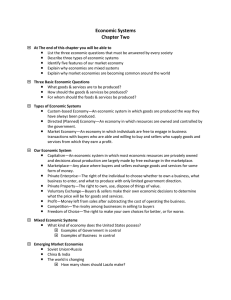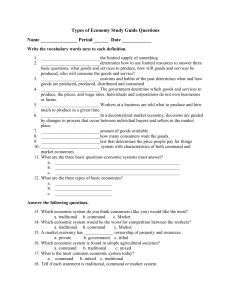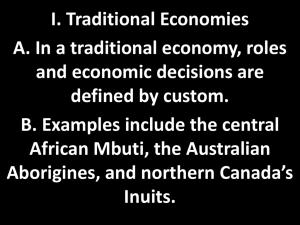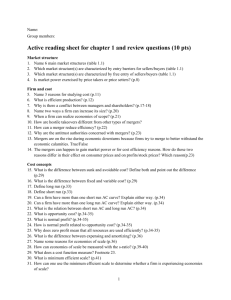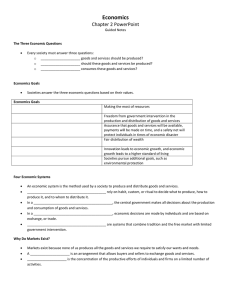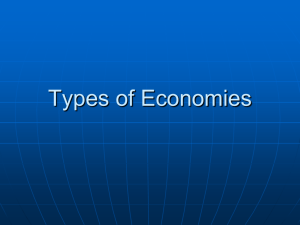Document
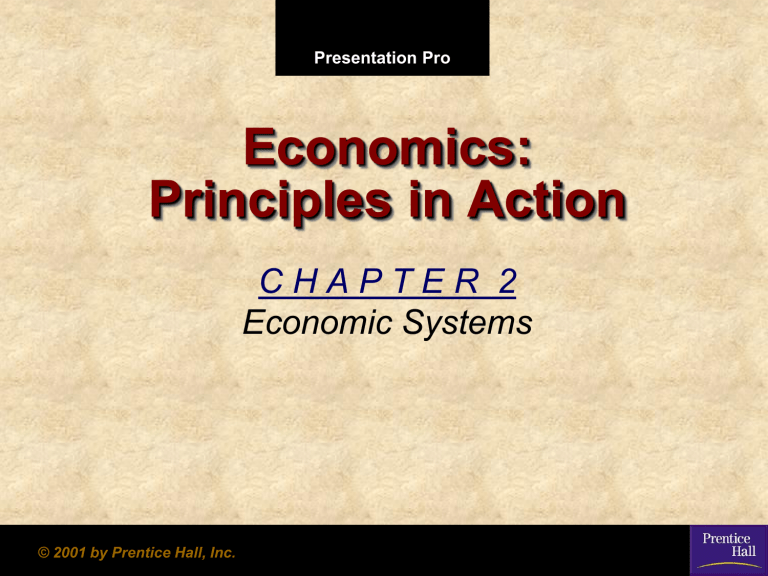
Presentation Pro
Economics:
Principles in Action
C H A P T E R 2
Economic Systems
© 2001 by Prentice Hall, Inc.
The Three Economic Questions
Every society must answer three questions:
• What goods and services should be produced?
• How should these goods and services be produced?
• Who consumes these goods and services?
Go To
Section:
1 2 3 4
Chapter 2, Section 1
Four Economic Systems
An economic system is the method used by a society to produce and distribute goods and services.
Traditional economies rely on habit, custom, or ritual to decide what to produce, how to produce it, and to whom to distribute it.
In a market economy economic decisions are made by individuals and are based on exchange, or trade.
In a centrally planned economy the central government makes all decisions about the production and consumption of goods and services.
Mixed economies are systems that combine tradition and the free market with limited government intervention.
Go To
Section:
1 2 3 4
Chapter 2, Section 1
Why Do Markets Exist?
Markets exist because none of us produces all the goods and services we require to satisfy our needs and wants.
A market is an arrangement that allows buyers and sellers to exchange goods and services.
Go To
Section:
2 3 4
Specialization is the concentration of the productive efforts of individuals and firms on a limited number of activities.
Chapter 2, Section 2
The Market’s Self-Regulating Nature
•
In every transaction, the buyer and seller consider only their self-interest , or their own personal gain. Self-interest is the motivating force in the free market.
•
Producers in a free market struggle for the dollars of consumers. This is known as competition , and is the regulating force of the free market.
•
The interaction of buyers and sellers, motivated by selfinterest and regulated by competition, all happens without a central plan. This phenomenon is called “the invisible hand of the marketplace.”
Go To
Section:
2 3 4
Chapter 2, Section 2
Advantages of the Free Market
Economic Efficiency Economic Freedom
As a self-regulating system, a free market economy is efficient.
Free market economies have the highest degree of economic freedom of any economic system.
Economic Growth Additional Goals
Because competition encourages innovation, free markets encourage growth.
Free markets offer a wider variety of goods and services than any other economic system.
Go To
Section:
2 3 4
Chapter 2, Section 2
The Rise of Mixed Economies
Market economies, with all their advantages, have certain drawbacks.
Limits of Laissez Faire
Laissez faire is the doctrine that government generally should not interfere in the marketplace.
Governments create laws protecting property rights and enforcing contracts. They also encourage innovation through patent laws.
Go To
Section:
2 3 4
Chapter 2, Section 4
